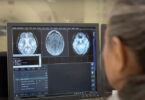Imagine spending the majority of your day performing rituals or routines your brain is telling you need to be done, and in a certain order, to prevent something bad from happening.
It may include brushing your teeth eight times, flossing, brushing again multiple times. Turning the lights on and off, tapping things, going up and down stairs a certain number of times. Folding laundry in constant repetition over five hours. Avoiding cracks or other obstructions in the road. Or it may be washing hands excessively and repetitively, and in certain ways.
Rationally you know it doesn’t make sense but your mind is telling you otherwise.
The routines take so much of your time that it’s almost impossible to function in a job, at home, as a student at school, and your social life is halted. You may not be able to leave your home much, except for short periods, but those become increasingly more difficult and stressful.
Someone with obsessive compulsive disorder, or OCD, thinks something bad may happen, their anxiety spikes, and they develop rituals they feel compelled to perform in order to prevent their fears from coming true: they can be tapping, checking, or repeating other routines. It revolves around an obsession, an unwanted and intrusive thought, that may be about contamination, a concern that something bad may happen to one’s family, making mistakes, being responsible for causing a catastrophe like a fire, and often a combination of things.
“These patients experience a level of illness so severe and debilitating that they are rendered gravely disabled, often becoming homebound, and unable to function in normal activities of daily living,” says Dr. Peggy Richter, head of the Frederick W. Thompson Anxiety Disorders Centre at Sunnybrook, Canada’s most specialized centre in OCD and related disorders. “These individuals have typically failed treatment at a lower level of care (i.e. medication and/or psychological treatment) and are unable to have their needs met through these standard evidence-based treatments.”
Some individuals only obtain a limited response because the severity or complexity of their illness interferes with their ability to complete these treatments, and in some cases, there may also be limited access to therapy.
For these more extreme cases, there is now an intensive residential program available at Sunnybrook, however this too is sometimes not an option for a few of the most extreme cases.
Surgical intervention

Patients then have some interventional and biological options to consider. A traditional surgical method known as radiofrequency capsulotomy is an operation whereby two lesions are created in the “internal capsule” of the brain – destroying the tracts believed to underlie symptoms of depression and anxiety and treating the brain circuit known to be essential for emotion and affective process.
Another surgical option is deep brain stimulation that involves the implantation of bilateral brain electrodes, connected to a battery in the chest wall by wires beneath the skin. The electrodes stimulate the brain with currents to disrupt abnormal neural activity.
Both surgical options carry risk of surgery-related complications such as damage to the brain, hemorrhage and infection, but can help individuals with severe OCD when all other treatments have failed.
Investigating non-invasive options
More recently, Sunnybrook is investigating non-invasive surgical procedure options for those with severe, treatment-resistant OCD:
Focused ultrasound psychosurgery (in which Sunnybrook is a Centre of Excellence) is a neurosurgical procedure that is non-invasive, controlled, and can be targeted to specific diseased locations in the brain. This promising technique has been used to perform capsulotomies in patients with severe OCD. The safety and efficacy of focused ultrasound in OCD treatment is currently being investigated, however advantages include that it can be done using simultaneous magnetic resonance imaging (MRI) for guidance and precise targeting in the brain. The procedure may not be suitable for everyone. It can take from several months to a year after the procedure to determine if and how much symptoms improve.
Gamma Knife Icon is another non-invasive procedure that although traditionally used for cancer patients, it treats various functional neurologic disorders. It’s similar to focused ultrasound in that the end result is the disruption or lesion of misbehaving cells deep in the brain, without ever having to cut through the scalp. Where focused ultrasound uses high-intensity ultrasound waves, Gamma Knife surgery uses highly targeted high-dose radiation to a focused location in the brain, in an attempt to achieve the effect that traditional brain surgery would do while sparing other healthy parts of the brain.
 Now for the first time in Canada, Sunnybrook radiation oncologist Dr. Arjun Sahgal recently teamed up with neurosurgeon Dr. Nir Lipsman to try the Gamma Knife Icon technique with a patient with severe OCD.
Now for the first time in Canada, Sunnybrook radiation oncologist Dr. Arjun Sahgal recently teamed up with neurosurgeon Dr. Nir Lipsman to try the Gamma Knife Icon technique with a patient with severe OCD.
The procedure itself went well, however there were challenges presented by the patient’s symptoms. For example, it took much longer as they had to work around his rituals to help alleviate the extreme anxiety that takes hold when the daily rituals are interrupted.
We won’t know for several months whether symptoms will improve, as it takes approximately six months for the radiation to take effect.
“We are optimistic that this technique will provide some symptom relief for this patient and others with severe OCD when other treatments are not working or not an option for them,” says Dr. Sahgal, a world-renowned leader in stereotactic radiosurgery.
For individuals with severe OCD considering treatment options, talk to your doctor to learn more.
Learn more about the Harquail Centre for Neuromodulation at Sunnybrook »








